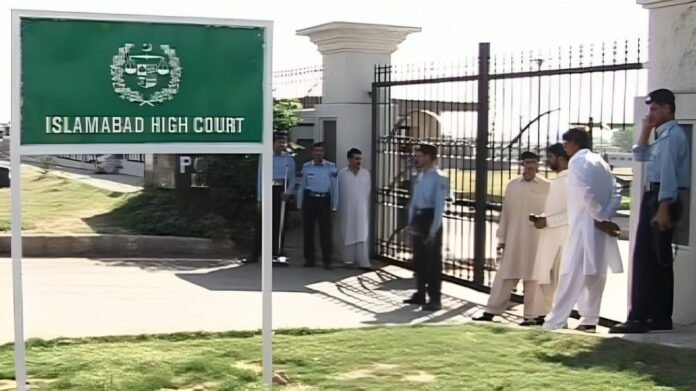Islamabad – The Islamabad High Court continued hearing arguments on a petition challenging PEMRA’s notification banning court reporting. Chief Justice Aamer Farooq emphasized transparency and the public’s right to be informed.
Chief Justice’s Remarks
Justice Farooq remarked, “We live in an open world. Let the public know what is happening. Over the past year, how many actions has PEMRA taken against incorrect reporting? The issue lies with those who make decisions in evening programs, not the reporters responsible for their court reporting.”
He acknowledged the responsible reporting by Islamabad High Court reporters and questioned if any incorrect report had prompted PEMRA’s notification. If the media reports something I didn’t say, PEMRA can penalize the media house upon complaint. 99.99% of reporting is accurate, with only a 0.01% chance of human error.”
Legal Representation and Arguments
The court session included senior lawyers such as Vice Chairman of the Islamabad Bar Council Adil Aziz Qazi, Advocate Umar Ijaz Gilani, High Court Bar President Riassat Ali Aazad, and senior lawyer Azhar Siddique. Chief Justice Farooq asked during the hearing, “Did PEMRA issue this notification due to any incorrect report? PEMRA can penalize the media house if it reports something I haven’t said.
He added, “When the court issues a signed decision, it becomes public property. Objection should be directed at the decision, not the judge. We should encourage debates on judicial decisions, highlighting errors, if any.”
Objections and PEMRA’s Stance
PEMRA’s lawyer objected to the petition’s maintainability, stating that no channel had challenged the directives issued to media houses. Chief Justice Farooq responded, “PEMRA has imposed a complete ban on court reporting. We are in the era of media; electronic media can broadcast my observations globally. One mistake and it becomes a spectacle worldwide. It’s an era of transparency.”
He emphasized the necessity of reporting on both bench and bar errors, stating, “We are here to protect people’s rights. What misinformation did PEMRA have to base this decision on?”
Importance of Public Access and Transparency
PEMRA’s lawyer mentioned that broadcasters could air written orders, to which Chief Justice Farooq responded, “Remarks given in court are part of judicial proceedings. Deciding whether to make proceedings in-camera is the court’s prerogative. It’s sending the wrong message that PEMRA is banning the reporting of judicial observations. Judicial proceedings involve not only the court’s order but also submitted responses.
The Chief Justice pointed out, “If those in court have the right to hear and see the proceedings, why not those who are not present? In 1975, the first criminal trial was televised in the USA. If it’s a matter of national security, the court will declare it so. I protect public rights; I cannot deprive the world of this right.


